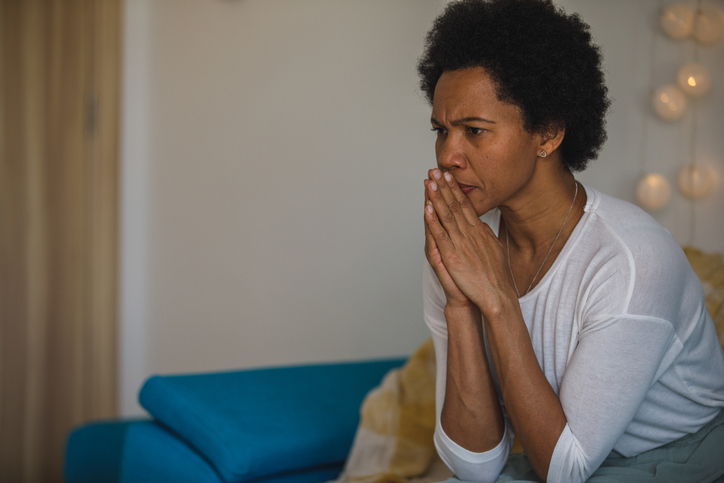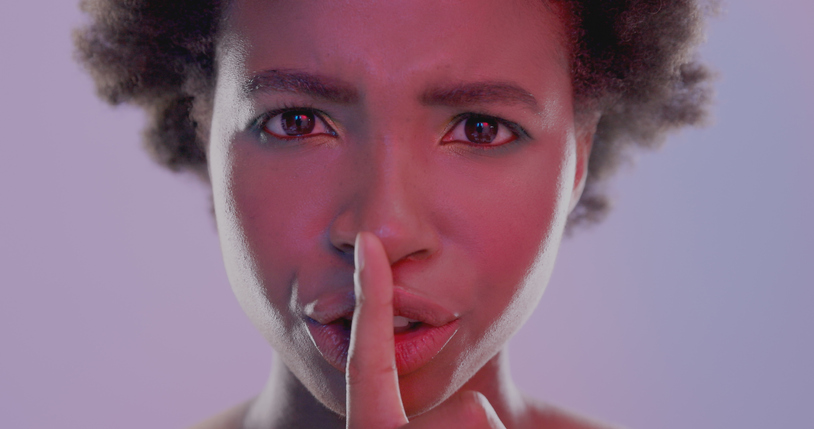
Source: Westend61 / Getty
Many young girls grow up with the idea that pregnancy is something that happens easily – even too easily. Sex Ed, albeit informative, pregnancy prevention is a major conversation. Youth is littered with chaperones, curfews, open-door policies with opposite gender guests and so many factors that were designed to prevent pregnancy. Young women can spend so many years actively trying to not become pregnant that this reality comes as an absolute shock: not all women can become pregnant—even when they try.
When you’re fed the idea that pregnancy is always after you, it’s only natural to think that when you finally want to have a baby, it will be the easiest thing in the world. But for many women, they face a very different reality that can be heartbreaking and impacts every part of their lives from their friendships to their mental health and marriages. Infertility—Black women know this pain even more than other groups. The American Psychological Association reports that Black women are more likely to suffer infertility than white women, but less likely to talk about it. Opening up to loved ones can be the only relief a person gets from such a difficult experience, but Black women often bear this burden alone. MADAMENOIRE looks at the particular pain Black women experience when facing infertility.
Fertility = Identity

Source: southerlycourse / Getty
Researchers at the University of Michigan interviewed 50 Black women of ages ranging from early 20s to mid-50s who dealt with infertility at some point in their lives. A common sentiment mentioned was the ability to have children is linked to a Black woman’s identity as a woman. Thirty-two percent of the participants stated that they grew up around stereotyping comments that equated motherhood with womanhood, and said that infertility left them feeling like they weren’t “real” women.
“Emotionally, I felt that I was not complete, because I had not had a child, explained one participant. “And it (infertility) would label you as a failure.”
The Stereotyping Starts Early

Source: FG Trade / Getty
While anxiousness around teen pregnancy runs high in all racial groups, it takes on an entirely different tone in the Black community. The American Psychological Association says that a high number of Black women report growing up around ideas about Black women being “hyper-fertile.” Being raised with such ideas only increases the feeling of being “abnormal” for Black women who do face infertility as adults. It even threatens a Black woman’s sense of belonging to her own community.
Against God’s Wishes

Source: fotostorm / Getty
The University of Michigan research found that one more factor brought a great deal of shame for Black women who were infertile: religion. Many survey participants alluded to the idea that God made women so that women could make children. Not having children, in that case, was to disappoint God. That’s one of the greatest pains of all for someone coming from a religious background.
Suffering in Silence

Source: Anchiy / Getty
Women have a deep desire to share and open up with other women. If there is one thing that can at least soothe suffering somewhat, it’s being able to talk to friends and family about it. Infertility, however, is one area where Black women do not feel comfortable opening up. The survey from U of M found that almost all participants said they dealt with their infertility in isolation, not speaking to others about it. Many said that they’d had past experiences of sharing their suffering, and not eliciting any sympathy.
“It’s Not My Business”

Source: katleho Seisa / Getty
While privacy is important, it can quickly turn into loneliness and that’s often the case with Black women facing infertility. Notions of privacy are very strong in the Black community, and the majority of women in the U of M survey said that they kept their struggles to themselves because of that very dynamic. “I never said anything to anyone else because in our culture…it was not something that you shared,” explained one woman.
Infertility And Marriage Instability

Source: Vladimir Vladimirov / Getty
Not being able to experience the joy of motherhood is enough pain on its own: losing a marriage over it is almost too much to bear. Unfortunately, research out of the Journal of Human Reproduction found that fear around marital instability is a common sentiment for Black women dealing with infertility. The study found that many Black women don’t even discuss infertility with their partners, because they worry the topic will cause tension or conflict.









